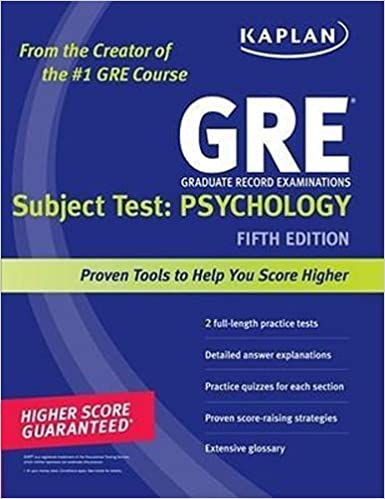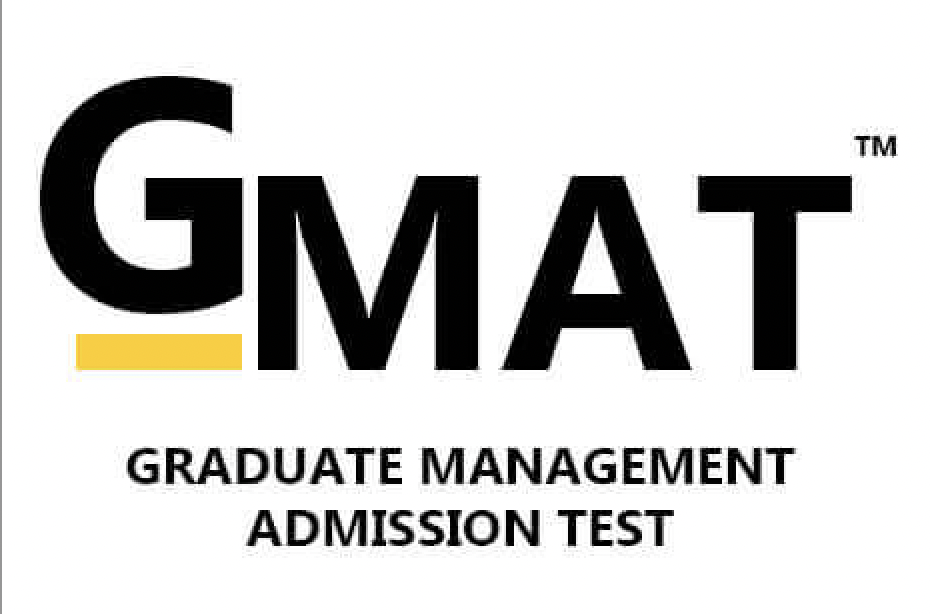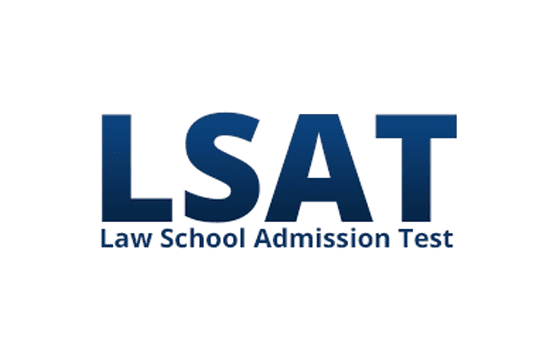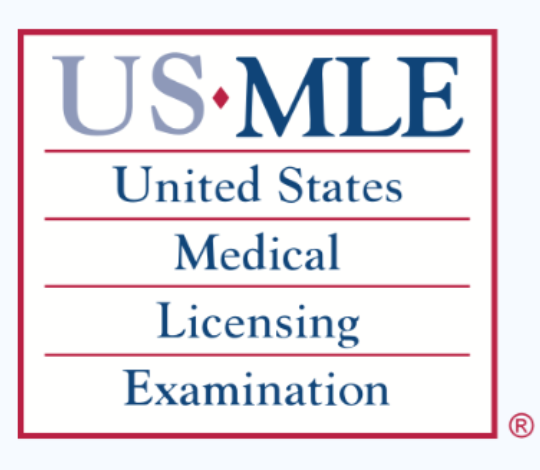Admission tests
Admission tests provide US universities with a way to compare the level of students from different backgrounds and from different educational systems and reflect abilities such as verbal reasoning and language analysis, critical reading, writing, mathematics and data analysis, or specific subject knowledge.
Which tests to take depends on the university, the field of study, and the level of study to be taken. In addition, each university has its own requirements for test scores to be obtained.
The most commonly requested tests are:
For master’s and PhDs (general): Graduate Record Examination (GRE).
For MBA and Business: Graduate Management Admissions Test (GMAT).
For JD programs (law): LSAT (An LLM usually does not require you to take an LSAT)
For medicine: USMLE or MCAT
On this page you can read more about the content of these tests, registration and practice materials.

GRE
If you want to study at the graduate level in the US, in many cases you must take the GRE General Test. Check the admission requirements of the universities you are interested in to see if the GRE General Test is required. Those who want to study law, medicine, dentistry, veterinary medicine, fine arts, or music usually do not take the GRE General Test. Business and economics majors often require a score on the GMAT, although a growing number of universities also accept the GRE. In addition to the GRE general test, some universities also require a score on a GRE Subject Test.
Content of the GRE General Test
The GRE General Test is a computer test that takes a total of four hours to complete. The test consists of three parts: analytical writing skills, verbal skills, and quantitative skills.
- Analytical writing skills
Two writing assignments that examine how well you think critically, substantiate opinions, and communicate complex ideas. - Verbal Skills
This section assesses how good you are at analyzing, evaluating, and summarizing texts, and analyzing the relationships between phrases. The emphasis is on reading skills, with tasks that focus on your ability to draw conclusions and understand the text. - Quantitative Skills
This section aims to assess your understanding of basic mathematical categories such as algebra, geometry, number theory, and your ability to solve arithmetic problems. The test focuses on to data analysis and provides realistic scenarios.
Registration
Registering for the test is done online through ETS. You can take the test throughout the year in Amsterdam. Taking the test costs $205, and you can pay this amount by credit card.
Scores
GRE test scores remain valid for 5 years. ETS offers the option to choose which scores you have sent to the universities. This ScoreSelect option means that on test day, you have the choice of sending the scores from your current test or the scores from any GRE tests you have previously taken to four universities. If you don’t yet know where you want to apply or want your score sent to more than four universities, you can also have your score sent to you later through ETS. Even if the universities have not yet received your application, they will keep your test score.

GRE Subject Tests
In addition to the GRE General Test, some universities also use a Subject Test as an entrance requirement for their graduate programs. Subject Tests exist in the following subject areas:
- Biology
- Chemistry
- English literature
- Mathematics
- Physics
- Psychology
If you want to study any of these subjects, check the admission requirements of the universities you want to apply to to see if you need to take the Subject Test.
The GRE Subject test is a written test that lasts two hours and fifty minutes. The content varies by subject area. The ETS website has a precise description of the content for each test.
Registration
Subject Tests are administered three times a year, usually in September, October and April. The test costs $150. You must register with ETS at least six weeks prior to the test date. The test is not administered in the Netherlands. Search the ETS website for nearest test centers that administer paper delivered tests.
Scores
Subject Test scores are valid for a maximum of five years. The ScoreSelect option is also available for Subject Tests. If you do not yet know where you want to apply or want your score to be sent to more than four universities, you can also have your score sent to you later through ETS. Even if the universities have not yet received your application, they will keep your test score.

GMAT
For admission, MBA programs generally require your score on the Graduate Management Admissions Test (GMAT). Check the admission requirements of the business schools you are interested in to see if the GMAT is required. Some business schools accept a score on the GRE.
Content of the GMAT
The test measures general language, mathematical and analytical skills. The test lasts 3.5 hours and consists of the following components:
- An analytical writing assessment: this measures your ability to think critically and communicate complex ideas in writing.
- Integrated Reasoning: 12 questions to analyze different types of data from various sources such as graphs and tables.
- 37 quantitative multiple choice questions: this measures your quantitative reasoning ability, problem solving ability and your knowledge of basic mathematical principles such as algebra and geometry and concepts.
- 41 linguistic multiple-choice questions: these measure your ability to understand and evaluate what you read, as well as your ability to recognize correctly-written English.
Registration
The test is administered throughout the year in Utrecht, Nieuwegein, Diemen and Amsterdam. The test can be taken almost every week and is administered by Pearson Vue. You can register for the test through MBA.com. Taking the test costs $250.
Scores
GMAT scores remain valid for five years. At the end of the test, you have the option to see the preliminary results for the multiple-choice questions. Should you not be satisfied, you have the option to cancel the test. By doing so, you are effectively indicating that you did not take the test. This is irrevocable, so consider it carefully. If you are not satisfied with the score, you can retake the test after 16 calendar days at the earliest. Your new score will be forwarded to the universities along with the scores from your last two attempts in the past five years, provided you have accepted the score.
If you decide to accept the score, you will be able to view your score online within 20 days. Also, Pearson Vue will send your score to five universities specified by you on test day. If you do not yet know where you want to apply or want your score sent to more than five universities, you can also have your score sent to you later through Pearson Vue. This does incur an additional cost. Even if universities have not yet received your application, they will keep your test score.

LSAT (Law School Admissions Test)
Those studying law in the US must apply for Law School through the Law School Admissions Council (LSAC). This is also the organization that administers the LSAT. Check with the program you will be applying to to see if the LSAT is a requirement. The LSAT is usually not required if you are going into an LLM program, but it is required for a JD program. The LSAT is accepted by most major law schools.
What is the LSAT?
The LSAT is the most widely accepted admissions test and is accepted by all ABA-accredited U.S. Law Schools. The LSAT consists of multiple choice questions and a writing assignment. The test lasts a total of 3 hours and 30 minutes and consists of the following items.
- Reading comprehension skills
- Analytical skills
- Logical reasoning
- LSAT Writing sample
Registration
The LSAC can be taken on a limited basis in Europe. You can register online at LSAC.org. Follow LSAC’s instructions and create an account to register for a test date. You may need to take the LSAT in another European country or the U.S.
The LSAT costs $215. Sending a score report to law schools costs $45.
Scores
You will be scored on a scale of 120 to 180. Your LSAT score is part of the Law School report from LSAC. Included in this application is: LSAT score, academic summary report, grade reports from all courses, admission index (combination of grade point average and LSAT score), and letters of reference.

USMLE (United States Medical Licensing Examination)
Successful completion of the United States Medical Licensing Examinations (USMLE) is a prerequisite for physician certification in the US. The test measures how competent a physician is in applying the knowledge, skills, and principles central to health care that are important in contacting and treating patients. For researchers and students who do not have contact with patients, passing the USMLE is often not required.
Content of the USMLE
The USMLE consists of three exams. The three exams are preferably passed within a 7-year period. Step 1, Step 2 CS, and Step 3 are taken in a computer test center. Step 2 CS involves working with patients. The Step 1, Step 2 CK, and Step 2 CS exams do not have to be taken in order. Thus, it is possible to take the Step 2 exam first and only then take the Step 1 exam.
- Step 1
The Step 1 exam measures basic knowledge of medical sciences, including basic knowledge of health care, diseases and treatment modalities. - Step 2 Clinical Knowledge
To take the Step 2 CK exam, you must have completed at least 2 years of medical school or similar training. The exam measures the application of medical knowledge in the treatment of patients. - Step 2 Clinical Skills
This exam measures how competent a physician assistant is in diagnosing patients and the ability to communicate about them in the English language (supervised practice). Step 2 exams are administered throughout the year at ECFMG test centers in Philadelphia, Atlanta, Houston, Chicago, and Los Angeles. Results are sent in writing within 6 weeks of taking the test. Schedule this test as early as possible if you want to compete in the Match. Test dates fill up quickly leading up to the deadlines. The results of the Step 2 CS exam remain valid for three years. After completing ACGME accredited program in the US, the result remains valid indefinitely. - Step 3
The Step 3 exam lasts two days and measures the ability of a licensed physician (unsupervised physician) in applying medical knowledge and skills with an emphasis on treating ambulatory patients.
Registration
Applicants for Step 1 and Step 2 exams can specify at registration a preferred three-month period during which they can take the test, known as the eligibility period. After receiving the permission letter from ECFMG, the exam can be scheduled within that period. It is possible to take the test in the Netherlands at Prometric. Registration is done through Prometric. Candidates must register at least one month before the desired eligibility period.
International candidates for the Step 1 and Step 2 exams must, at a minimum, be enrolled or have earned a degree from a medical school listed in the International Medical Education Directory.
Candidates for the Step 3 exams must have earned an MD or similar degree, successfully completed Step 1 and Step 2 exams and be ECFMG certified to register for this test. Registration procedures vary by state. We recommend starting registration at least 6 months prior to taking it. Individual state medical boards offer more information.
Costs of the tests
Step 1 $895 + $185 surcharge for Europe
Step 2 CK $895 + $210 surcharge for Europe
Step 2 CS $1550


